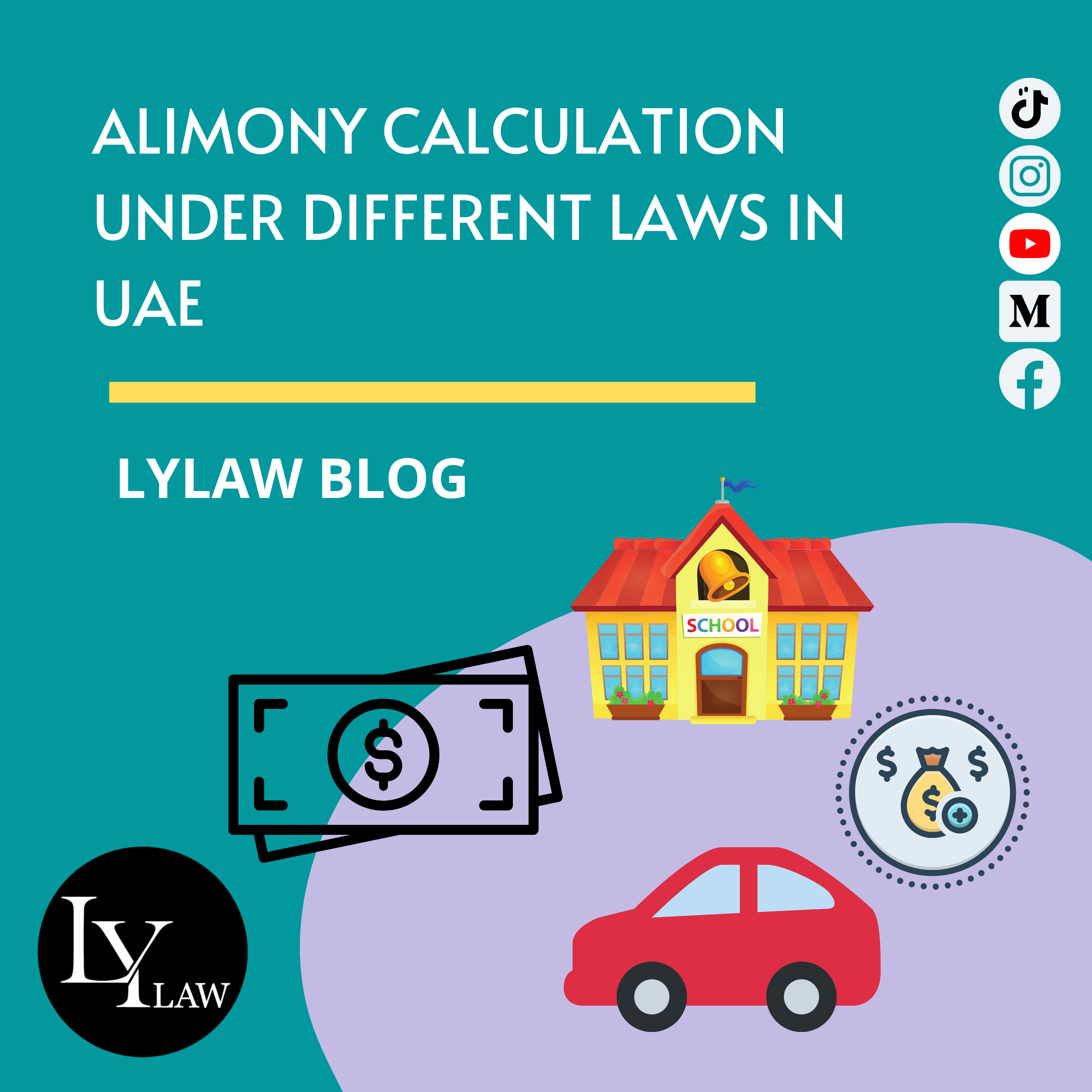
INTRODUCTION
This post explains how alimony is calculated for non-Muslim divorcees in the United Arab Emirates, using Federal Decree-Law No. (41) of 2022 on Civil Personal Status. That provided the applicable legislation with regard to family matters in the UAE, regarding civil marriage, divorce, custody, inheritance, and proof of parentage in respect of the determination for non-Muslim residents.
OVERVIEW OF RELEVANT U.A.E. LAWS AND REGULATIONS
U.A.E. Federal Law
In the UAE, personal status issues in respect of non-Muslims are provided for by Federal Decree-Law No. (41) of 2022 on Civil Personal Status (“Civil Personal Status Law”). Article 9 (Divorcee Alimony) provides the various elements that the relevant court considers in determining the divorcee’s alimony.
Cabinet Decision
The judge may consider more information regarding the alimony of a divorcee under Cabinet Decision No. 122/2023 on the Implementing Regulation of Federal Decree-Law No. 41/2022, specifically Article 10: Alimony.
Abu Dhabi Law & ADJD Resolution
Under Abu Dhabi’s Law No. 14/2021 on the Personal Status of Non-Muslim Foreigners, Article 8 prescribes the factors to determine alimony upon divorce, just like Article 9, Divorcee Alimony of the Civil Personal Status Law. In addition, Resolution No. (8) of 2022 regarding Marriage and Civil Divorce Procedures addresses a wide scope of alimony, including the determining factors and the finality of the same.
APPLICATION OF LAWS
This set of laws and regulations applies to all non-Muslim citizens of the United Arab Emirates as well as non-Muslim residents in the United Arab Emirates, unless the latter request the application of the laws of their respective home countries, provided these do not conflict with United Arab Emirate’s laws and regulations.
UNDERSTANDING ALIMONY
What is Alimony?
The alimony itself pertains to the financial claim put forward by the ex-wife at the time of divorce. In cases involving children, it also includes assistance with housing, health insurance, and many other things she might require that the ex-husband had provided during the marriage (Article 11 of the Cabinet Decision).
Housing During Joint Custody
Article 8 of the Cabinet Decision states the judge may request that the ex-husband pay an allowance to cover housing required for the living standard of the children pre-divorce.
Types of Alimony
Under Article 9 of the Civil Personal Status Law, the ex-wife can, independently of securing a divorce sentence, also file a case for alimony. She can also apply for the temporary alimony until she gets her final financial allowance (Article 10 of the Cabinet Decision).
CALCULATION OF ALIMONY
Bases of Calculation
Article 9 of the Civil Personal Status Law provides for the following criteria, which a judge shall base his calculations on:
Criteria
Length of the marriage. Alimony goes hand in hand with the length of the marriage; the longer the marriage, the heavier one partner may become dependent on the other financially.
Age of ex-wife. As the ex-wife gets older, her chances of getting a job might lower; hence, her alimony could be higher.
Financial condition. An accounting expert assesses the present financial situation of each party, which has to do with income, assets, debts, and liabilities.
Ex-husband’s contribution to divorce. As the contribution of an ex-husband to divorce becomes apparent, say through errors or neglect, the amount of alimony increases.
Material and moral harm. The judge takes into account any harm that a divorce may cause, such as reputational harm or physical harm.
Financial damages. This would include loss of job opportunities or income due to divorce.
Children’s custody. The judge may demand that an ex-husband cover costs associated with the mother’s custody of the children for up to two years.
Ex-wife’s childcare contribution. Alimony increases according to how much the ex-wife is committed to child care.
Required Documents
The court examines the documents presented by the ex-wife in the course of proving the financial positions of the parties.
Finality of Alimony
Under Article 49 of the ADJD judgment, an alimony decision is considered final and executable, provided the amount does not exceed AED 500,000.
Modification of Alimony
Alimony can be modified yearly based on the variation of circumstances arising due to changes in financial or personal positions. Under Article 9 of the Civil Personal Status Law
It is removed upon remarriage of the ex-wife or in case of loss of custody of the children.
JURISPRUDENCE: CASE NO. 301/2023
In 2023, the court of Dubai Personal Status, while awarding alimony, relied upon factors enshrined under Article 9. The compensation covered her expenses in Ethiopia. The court stated the following :
Category
Children: AED 4,000 per month, excluding education, residence, and domestic help.
Utilities and Bills: AED 700 per month for utilities, internet, and phone bills.
Domestic Help: AED 2,000 for hiring domestic help and AED 500 for their salaries.
Total Alimony: AED 7,200
CONCLUSION
The Civil Personal Status Law, along with relevant Cabinet Decisions and Abu Dhabi laws, provides a comprehensive framework for calculating alimony for non-Muslim divorcees in the UAE. By considering various factors, the law ensures that financial support is fair and reflective of each individual’s circumstances.






